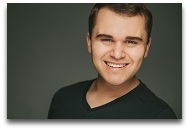Coaching Model for Business Success
In today’s guest post Dr. Cherry A. Collier shares a:
Coaching Model for Business Success
By Dr. Cherry A. Collier

Also known as ‘process of transition’, the U-Process coaching for business success is a coaching for transition towards change. The client receiving the coaching can experience change in their emotions, from denial to acceptance and moving forward.
There are three stages in Scharmer’s U-Process of coaching. These are sensing, presence and realizing. These three stages represent the basic aspects of the process and all following the initial education process.
Before going to the U-Process model, the coach and the client should first establish what their goal is for doing the coaching. They should both be in accord with their targets as they processed with the U-process.
The U-Process Scharmer’s Model
The first stage in the U-process of Scharmer’s model is sensing. This is the part of the process where the coach helps the client build awareness through observation. The client needs to be able to observe his business, its current standing in the industry and the world, if he aims to have his business globally competitive. The second stage is presence; this is the part in the coaching model where the coach and the client start to receding, reconsidering, and allowing an inner perceptive to develop. The last stage is realizing it is about acting fast with natural flow from the knowledge the client acquired from awareness and presence.
The U-process model is about integrating with the world. At the second stage of the U-process is the “inner gate” where we drop the baggage of our journey, going through a threshold. It is like giving a re-birth to the client’s business. This helps the client to let go and discover whom they truly are, to see from the deepest portion of themselves, emerging consciousness that increases with a change in purpose.
The U-Process Study Case
The U-Process Study case created during the Global Convention on Coaching (GCC) by Dr. Sunny Stout Rostron, DProf, MA was for collaboration dialogue of stakeholders in one’s company. There are five process and based on the Scharmer’s U- Process model. The processes are:
Co-initiation – This process is about being sync with one another on the goals. Empathizing and knowing what the co-collaborator or stakeholder want to do to achieve the goals.
Co-sensing – This is the part where all the collaborator or stakeholder observes, from the doing researches to within the industry their company or organization belong, to what their business is currently at.
Presencing – Connect to the source of inspiration and will. Go to the place of silence and allow the inner knowing to emerge.
Co-creating – Pattern the new with living examples to explore the future by doing the strategic plan.
Co-evolving – Exemplify the innovative in the environment that enable understanding and performing from the whole. This process includes three stages: pre-convention, convention and post-convention.
This model is not only applicable for collaborative problem solving of stakeholders, it is also applicable for each individual member of the company or the organization. It only varies from where they would channel their inspiration, to how they will co-evolve themselves with the current process.
About Dr. Cherry A. Collier
Personality Matters, Inc.
Dr. Cherry A. Collier
919. 4. PEOPLE or 919.473.6753
Email: my******************@***il.com
Web Personality Matters:www.pmatters.org
Web Dr. Cherry: http://drcherrycoaching.com/
Article Source: Coaching Model for Business Success
EzineArticle Expert Page: Dr. Cherry A. Collier


 Specialising in Inspirational Leadership, Frederique Murphy is a mindset strategist who inspires leaders to believe and accomplish the extraordinary. With her Mountain Moving Mindset (M3) platform, she equips you with scientifically-based strategies to take your life, career and business to a whole new level: she makes change happen. With over 15 years of experience in corporate change and expertise in positive psychology, neuroscience and behaviour change, she helps your organisation reap the benefits of tapping into the power of the mind. Frederique is a passionate and charismatic speaker, who captivates audiences – when she takes to the stage, sparks fly and beliefs, attitudes and behaviours will be instilled to create lasting change. For more information on Frederique’s transformational services, visit
Specialising in Inspirational Leadership, Frederique Murphy is a mindset strategist who inspires leaders to believe and accomplish the extraordinary. With her Mountain Moving Mindset (M3) platform, she equips you with scientifically-based strategies to take your life, career and business to a whole new level: she makes change happen. With over 15 years of experience in corporate change and expertise in positive psychology, neuroscience and behaviour change, she helps your organisation reap the benefits of tapping into the power of the mind. Frederique is a passionate and charismatic speaker, who captivates audiences – when she takes to the stage, sparks fly and beliefs, attitudes and behaviours will be instilled to create lasting change. For more information on Frederique’s transformational services, visit 




